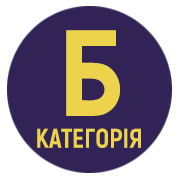PERSONALLY ORIENTED LEARNING TECHNOLOGY IN THE PRACTICE OF TEACHER’S ASSISTANT WORK
DOI:
https://doi.org/10.32782/ped-uzhnu/2023-1-1Keywords:
child with intellectual disabilities, personally oriented learning technology, inclusive learning, partnership pedagogy, learning methodsAbstract
The article describes the methods of personally oriented learning technology and their application in the work practice of a teacher, assistant teacher of an elementary school. At the center of the personally oriented technology is the child, his abilities, interests, application of methods, teaching techniques that motivate him to study and ensure the formation of key and subject competencies. For the education, upbringing and development of a child with educational needs, it is necessary to provide comfortable psychological and pedagogical conditions, which should be the main focus of the support team. The principles of personally oriented education have been clarified, including: the principle of uniqueness of each child; the principle of recognizing the “absence” of disabled children; the principle of taking into account the inequality of mental abilities of children; the principle of individualization of the educational process; the principle of taking into account the individual characteristics of students; the principle of obtaining positive feelings from learning etc. Examples of the use of methods of personally-oriented technology in the education of children with intellectual disabilities in primary school are provided: games (cover various areas of development of a child with intellectual disabilities: cognitive, aesthetic, ethical and provide an opportunity for self-expression and reflection); training exercises (aimed at the development of voluntary attention, fine motor skills); the imitation method (contributes to the formation of cognitive skills and interests of a student with intellectual disabilities); simulation (simulation of the situation of behavior on the street, with friends, at school). It is noted that when using a Lego constructor, the principles of conformity to nature are implemented (the age of the child is taken into account); systematicity, repeatability and clarity of training; cooperation. Attention is focused on the fact that success can be achieved only in joint activities in the process of implementing the principles of child-centeredness and partnership pedagogy. According to the personally oriented learning technology, the student is the subject of education (accompanied by a teacher’s assistant); the teacher performs a consultative educational role, the teacher’s assistant and the support team direct the activities of the child with intellectual disability to his personal development.
References
Дятко Г. Впровадження особистісно орієнтованого навчання на уроках рідної мови в початковій школі. Рідне слово в етнокультурному вимірі. 2012. С. 395‒402.
Мазайкіна І.О. Формування готовності майбутніх учителів до застосування особистісно орієнтованих педагогічних технологій навчання іноземних мов у професійній діяльності : дис. … канд. пед. н. (доктора філософії) за спец. : 13.00.04 «Теорія і методика професійної освіти». Вінницький державний педагогічний університет імені Михайла Коцюбинського, МОН України, Вінниця, 2018. 259 с.
Освітні технології : навчально-методичний посібник / за заг. ред. О.М. Пєхоти. Київ : А.С.К., 2001. 256 с.
Про освіту : Закон України від 05.09.2017 р. № 2145-VIII. Відомості Верховної Ради (ВВР). 2017. № 38–39. Ст. 380. URL: https://zakon.rada.gov.ua/laws/show/2145-19.
Савченко О.Я. Особистісно орієнтовне спілкування. Навчання і виховання учнів 3 класу. Київ : Поч. школа. 2004. С. 12–18.
Теорія і практика інклюзивної освіти : навчально-методичний посібник. / Упорядник Бондар К.М. 2-ге вид., доп. Проєкт «Підтримка інклюзивної освіти у м. Кривий Ріг», 2019. 170 с.







